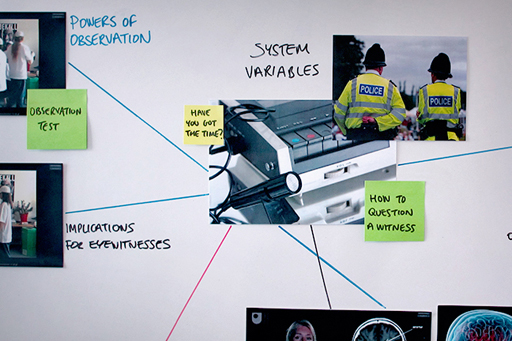3 Questioning witnesses

In Week 1, you were introduced to ‘estimator variables’, which are not under the control of the police. Here we turn our attention to ‘system variables’, and in particular one of the most important, how to question a witness.
Asking questions is part of our daily routine – ‘Have you got the time?’, ‘What did you do at school today?’, ‘Are you listening to anything I’m saying?’ – and yet we may never have stopped to consider the effectiveness of the questions we ask. Many different social, cognitive, motivational and cultural factors can influence both the way in which we ask a question, and the way in which we answer other people’s questions. Our focus now will be on questioning as it occurs in the context of an investigative interview and how questions can affect not only what we report, but actually what we remember.
Indeed, it is possible to ask questions in such a way that a witness will change their memory to incorporate information suggested in the question, or even form a memory of something that they did not see happen. In the next section, you will look at a research tool that has been used to explore such ‘false memories’.
